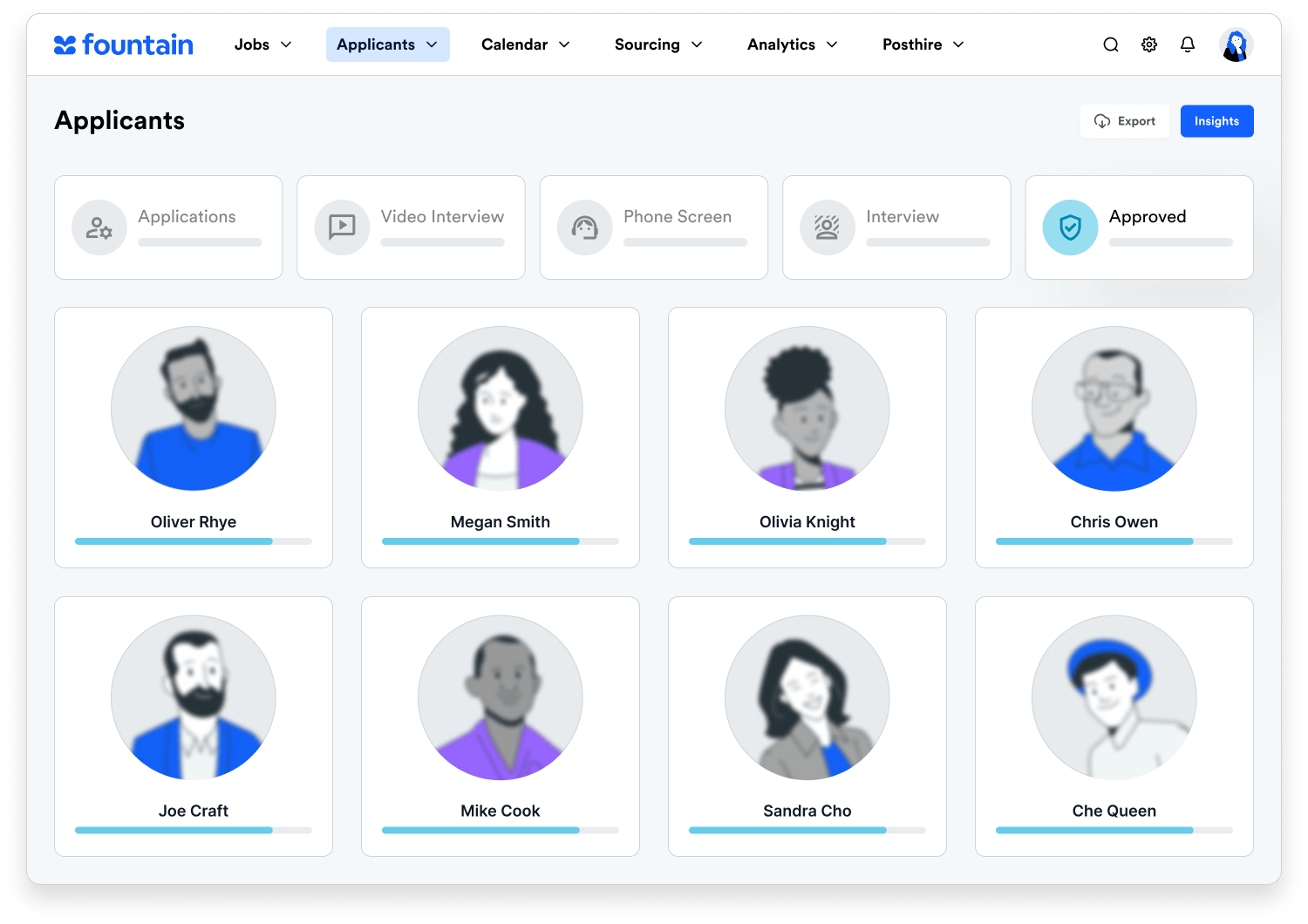All you need to know about the state of high volume hiring
The past three years have been a whirlwind for the world of work. When the pandemic basically shut down the world, it also shut down work for millions of people. Since the world started to reopen, professional industries have seen wavering levels of rebound, but one new truth has emerged: Work will never be the same.
In 2023 alone, we’ve lived through trends like quiet quitting, bare minimum Mondays, and aftershocks from The Great Resignation. From TikTok feeds to clickbait-worthy listicles, the media have covered a litany of #corporatelife hot takes.
But the common thread among these phenomena? They’re centered around corporate workers.
From 2020 to 2023, hourly, deskless, shift, and frontline workers have undergone their own workplace transformations—and we’ve got the data to prove it.
Introducing The State of Frontline Hiring: 2023 Annual Benchmarking Report. This report uncovers and analyzes both proprietary and anonymized hiring data across several key frontline industries, including:
- Professional and Business Services (Call Centers)
- Delivery Services
- Food Services and Restaurants
- Healthcare
- Warehouse Operations and Logistics
Sector-specific insights
In this annual benchmarking report, we thoroughly analyze our own industry-specific data and provide a comprehensive overview of hiring trends and challenges across frontline industries.
Our insights cover all things high volume hiring, like how conversion rates can differ based on the type of interview format you use (i.e., recorded videos vs. in-person interviews) and why application rates for warehouse operations have declined while delivery services application rates remained stagnant. If you hire workers for one of these (or other) industries, these findings are your first step in building a high volume hiring process for the future of frontline work.
Tuned in: Adopting a technology-first approach
One main conclusion derived from the findings in this report is that transitioning to a tech-enabled hiring process is no longer a way to get ahead—it’s the standard.
To remain competitive in today’s talent market, employers must embrace a technology-first approach. One way to do this? Ensure your hiring process is optimized for mobile. With this type of high-touch candidate experience, applicants can stay in the know about the status of their applications and can even complete steps of the process right from their mobile devices.
Continual optimization is another hiring tool that recruiters need in their arsenal. In order to stay efficient, they need to be able to assess whether their processes are producing intended (and desired) results, and to perform regular updates as hiring needs ebb and flow.
Conclusion
While it’s safe to say frontline work has experienced extreme turbulence in recent years, there is some positive momentum in terms of processes and the outlook for the future of these industries. Our benchmarking report serves as an invaluable resource for employers seeking to understand how their hiring practices compare to industry-wide trends.
With our actionable steps and data-backed insights, you’ll be able to assess your own hiring processes and make changes as needed to improve hiring rates and find the right people.

